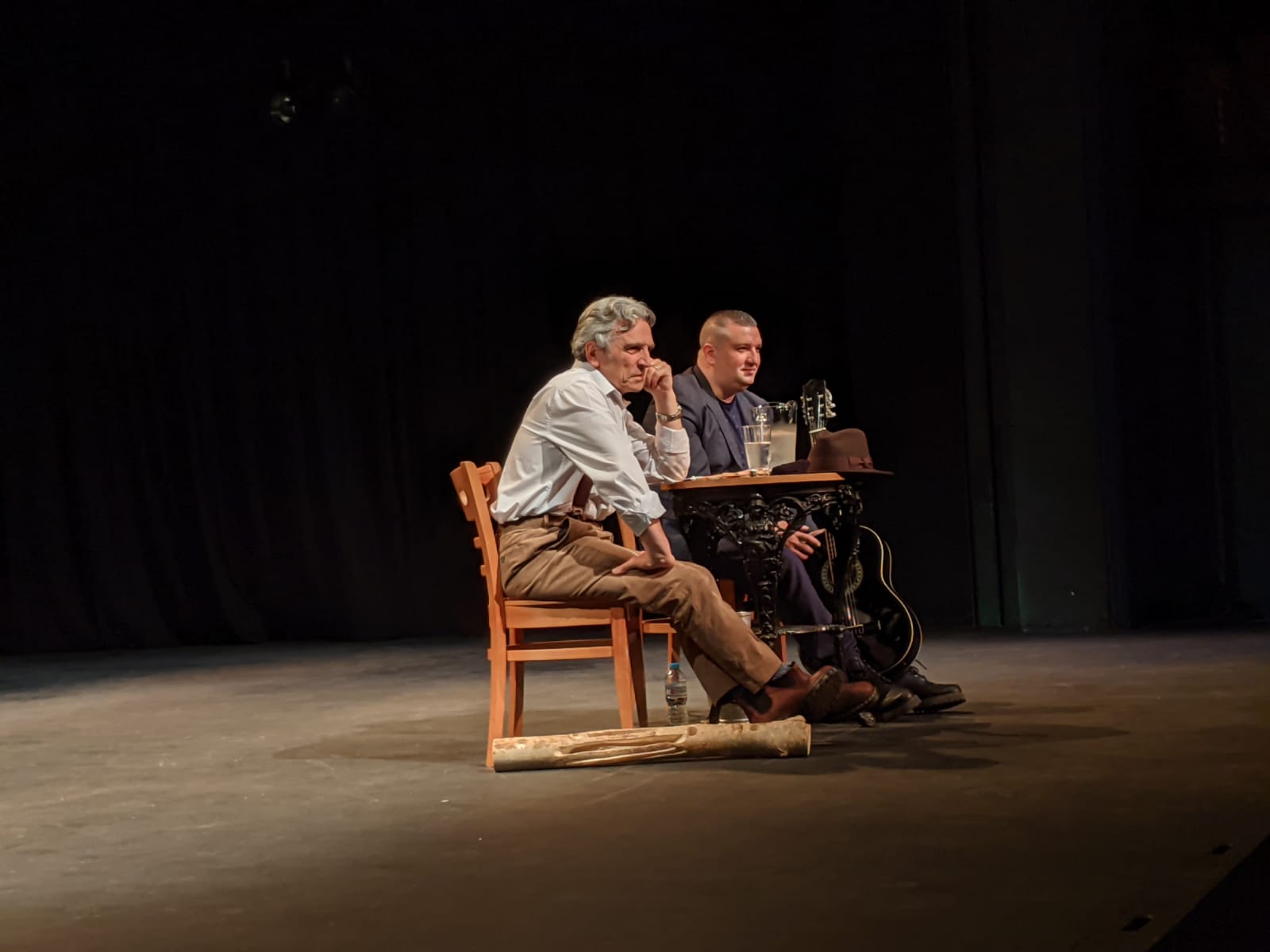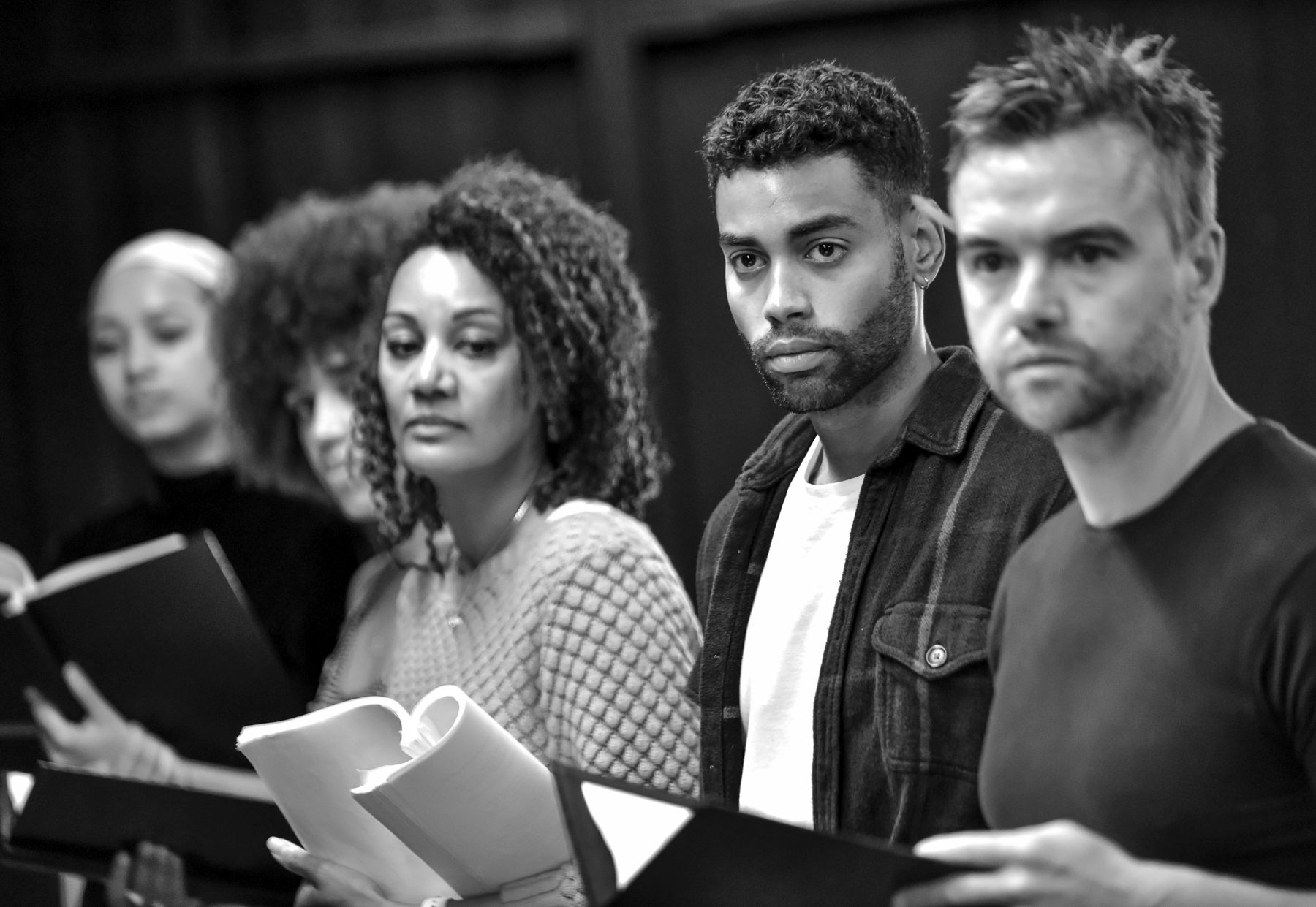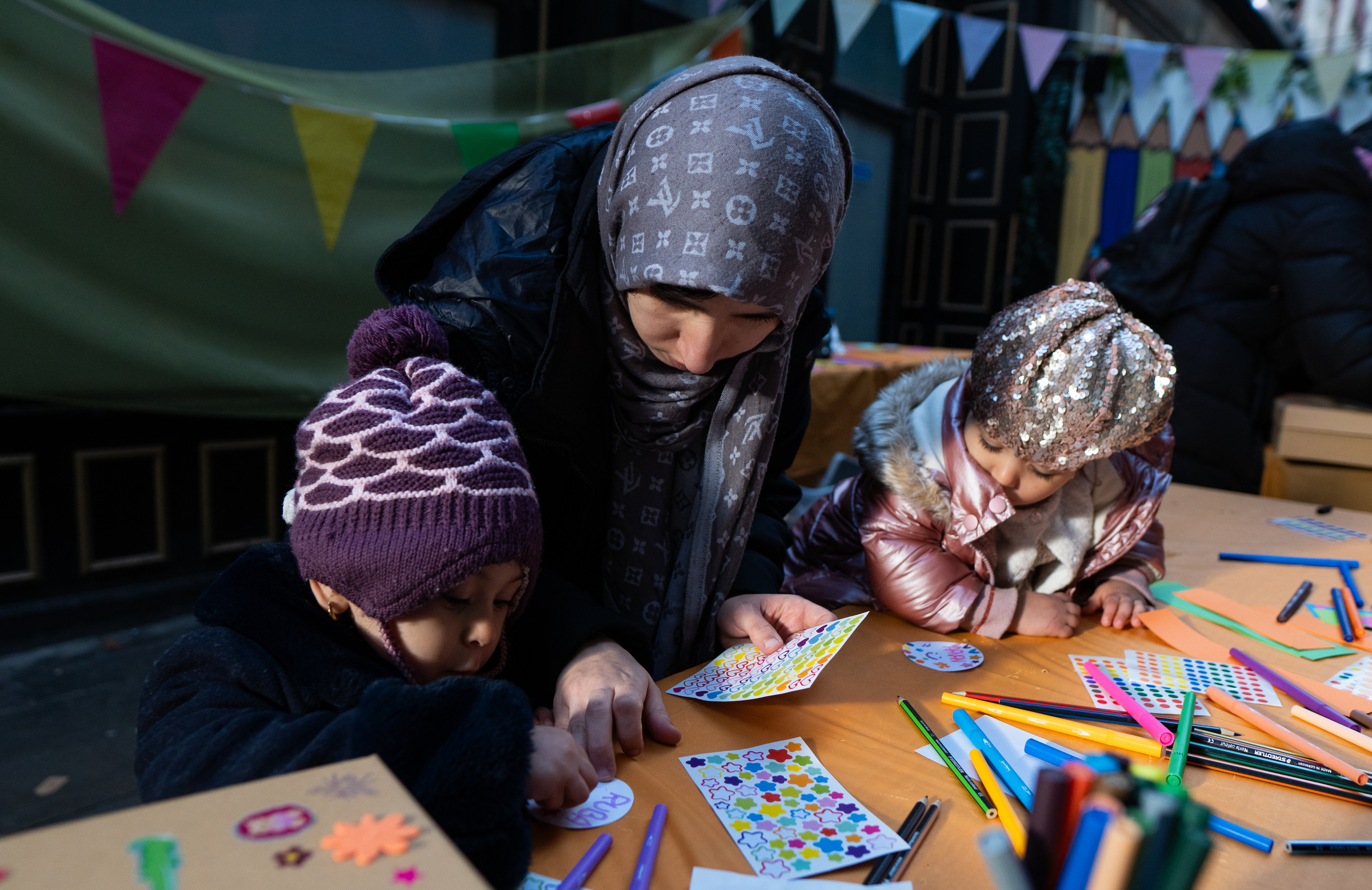
Oldham theatre supporting Roma and Romani Gypsy artists through live jam sessions
On Wednesday 1 September Oldham Coliseum Theatre and Roma-led charity KaskoSan present Gypsy Jam – the first in a series of live music jam sessions exploring the rich lyrical and performance traditions of the Roma and Romani Gypsy cultures with Richard O’Neill and Juice Vamosi.
The live music sessions form a strand of the Coliseum and KaskoSan’s long-term project work, which supports Roma people in Oldham and aims to provide a platform for new Romani Gypsy, Roma and Traveller talent.
Richard O'Neill says: “Gypsy music and storytelling has always brought people together right across the world and we are so pleased to have the opportunity to do the same in Oldham with Gypsy Jam.”
Richard O’Neill is a multi-award-winning storyteller, author and playwright born and raised in a large traditional nomadic Romani family, whose history in England and Scotland goes back hundreds of years. Richard continues the tradition of travelling across the UK and mainland Europe, delivering storytelling sessions and storytelling skills workshops at schools, libraries, festivals, universities and theatres. He has a particular interest in using literature to promote inclusion and social mobility.
Juice Vamosi is a Roma (Gypsy) activist, interpreter, film maker, marketing consultant and Gypsy party MC. He grew up in a poor Roma community in Southern Hungary. He was the first of his family to earn a university degree and to advise presidents of the World Bank and the EU. In 2010, he built the KaskoSan social network, the first global Roma brand. As a charity since 2014, KaskoSan supports Roma families in Oldham, Bradford and Bolton.
For the live jam session on 1 September Richard and Juice will be joined on stage by special guest, rapper and world record breaking human beatboxer, Testament. Together, through re-imagining traditional Roma and Romani Gypsy music and lyrics, Richard, Juice and Testament will bring to life their individual musical inspirations, and share stories and sounds in a live and lively jam session.
Testament’s lyricism brings together strands of rap, song and spoken word. His innovative work includes the celebrated Hip-Hop album Homecut: No Freedom Without Sacrifice, features on MOBO nominated albums, several performances for BBC Radio 1, 1xtra, Radio 4 and 6Music as well as numerous television appearances. He is writer and composer of the acclaimed hit play Black Men Walking which was nominated for Best Play at The Writer’s Guild Awards 2019 and Best New Play at the UK Theatre Awards 2020. His radio play The Beatboxer was nominated for the Imison Award at the BBC Audio Drama Awards 2020.
The Gypsy Jam project has already engaged over 200 Roma children and young people and their families in creative activity and built capacity in the community. For Gypsy, Roma Traveller Month 2021, Richard and Juice recorded a jam session on the Coliseum stage, using acoustic instruments and shared music-making practices, in which they discussed the history of the Romani Gypsy and Roma people and explored the connections between their linked but distinct heritage.
Originating in India, the story of their roots takes us through the middle east and North Africa, the Byzantine Empire, to contemporary Europe and Britain – and for Richard and Juice, to the North of England.
______
Terms used in the Gypsy Jam project: Roma and Romani Gypsy
Following guidance from Juice Vamosi we use the term Roma to describe ‘East European Gypsies’ who came to live in the UK after several East European countries joined the EU 17 years ago, and the term Romani Gypsy to describe those who first migrated to the UK 500 years ago. Both of these communities came from India and spoke the Romani language (a mix of ancient Sanskrit and ancient Greek).
Notes:
- ‘Roma’ is a noun, it comes from the word ‘Rom’ which means ‘a male human being’. ‘Roma’ is the plural of ‘Rom’ which means ‘human beings’
- ‘Romani’ is the adjective form of ‘Roma’. It follows the ‘noun-adjective’ logic of self designation terms such as ‘Italy - Italian’, ‘Spain - Spanish’, ‘England - English’ etc.
- At the International Romani Union’s (IRU) first congress organised in London in 1971 (the first major Gypsy gathering ever) the word ‘Roma’ was suggested to be used as the politically correct term for ‘Gypsy’, since the word Gypsy is used in both a positive, but often in a negative context and has become a racial slur. In Eastern Europe the original meaning of the word ‘Gypsy’ was slave.
- ‘Roma’ (plural noun form) or ‘Romani’ (adjective form) is a self designation term, this is how Gypsies call themselves in their own language.
- ‘Romani Gypsy’ refers to the Gypsies originating from India, that also spoke the Romani language and first arrived in the UK in the 1500s. In the UK the term ‘Romani Gypsy’ is also used to differentiate the ‘Romani Gypsies’ that moved to the UK five centuries ago from other Gypsies in the U.K. who share the ‘gypsy’ lifestyle, but do not originate from India, for example Irish Travellers.



